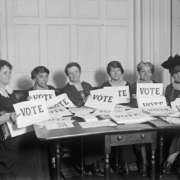Leaders in Congress support safe OTC hearing aid standards
 By NCL Director of Health Policy Jeanette Contreras
By NCL Director of Health Policy Jeanette Contreras
Mild to moderate hearing loss is a difficult reality that millions of Americans struggle with, which is why the availability of over-the-counter (OTC) hearing aids is exciting for those who are impacted by hearing loss. While making OTC hearing aids more accessible is a promising step for consumers, we at NCL would be remiss if we didn’t underscore our concerns around the Food and Drug Administration’s (FDA) proposed OTC hearing regulations as they currently exist.
In December of last year, NCL was one of hundreds of organizations who submitted a comment to FDA’s public docket on the issue; and last month we submitted a letter voicing our concerns to the FDA that was supported by 29 not-for-profit, public health organizations across the country. These organizations collectively represent the concerns of millions of consumers, patients, and individuals impacted by hearing loss.
We want to reiterate our enthusiasm for OTC hearing aids, but as the gold standard of safety in our country, it is imperative that the FDA make sure these devices are safe for consumers and do not worsen a problem they are intended to mitigate. As written, the draft regulations would allow for a maximum sound output level of 120 dBA – equivalent to the volume of a chainsaw or fire engine siren. This is concerning, as exposure to sounds at 120 dB can be dangerous in as little as nine seconds according to the CDC. This is why NCL, along with other leading consumer and healthcare voices, encourage the FDA to follow the recommendations of hearing care professionals, including the American Academy of Otolaryngology–Head and Neck Surgery that recommend a maximum output of 110 dB and a gain limit of 25 dB. Without a limit on gain, OTC hearing aids users will be able to amplify sounds to dangerous levels, and far beyond what Congress authorized when it said these devices must be limited to adults with moderate hearing loss or less.
The safety parameters we are recommending would in no way compromise the efficacy of OTC hearing aids intended for individuals with perceived mild to moderate hearing loss. In fact, a recent study concluded that commercially-available hearing aids programmed according to parameters typical of those used for individuals with mild to moderate hearing loss yield effective output and gain levels and are within the recommended limits specified by leading hearing care organizations and medical experts.
Importantly, the FDA has already cleared several hearing aids for adults with perceived mild to moderate hearing loss that were found to be safe and highly effective during clinical trials. While these devices were authorized under a different category of hearing aids, these devices limit the maximum output to 115 dB or below and gain to 30 dB or less, lower than the amplification limits currently proposed by the FDA. At the very least, the FDA should incorporate these amplification limits in the final OTC hearing aid regulation.
Finally, as we await finalized guidance from the FDA, we applaud leaders in Congress who are standing behind consumers in supporting safe and effective amplification limits. Last month, Congresswoman Betty McCollum (D-MN) and Congresswoman Rosa DeLauro (D-CT) sent a letter to the FDA echoing their safety concerns. The letter states, “[The proposed rule] hurts consumers and patients in two ways. First, it means individuals suffering from greater levels of hearing loss could put off a needed visit with a licensed hearing professional. Doing so could lead to worsening their existing symptoms, delaying an accurate diagnosis and treatment, and even creating irreparable damage to their hearing. Secondly, it means those with perceived mild-to-moderate hearing loss would be exposed to harmful levels of noise that could result in further damage to their long-term hearing. In order to avoid these concerns, FDA should impose a gain limit of 25 dB and an overall output limit of 110 dB.”
Similar to the countless other experts that have also weighed in, we believe that establishing safe amplification limits would not reduce the efficacy of these devices or limit the advancement of innovative technologies. We thank Congresswomen McCollum and DeLauro for being a voice for consumers and patients on this important issue. To learn more about gain and output and how to protect yourself from hearing loss, check out our infographic.




 By NCL Health Policy Associate Milena Berhane
By NCL Health Policy Associate Milena Berhane














